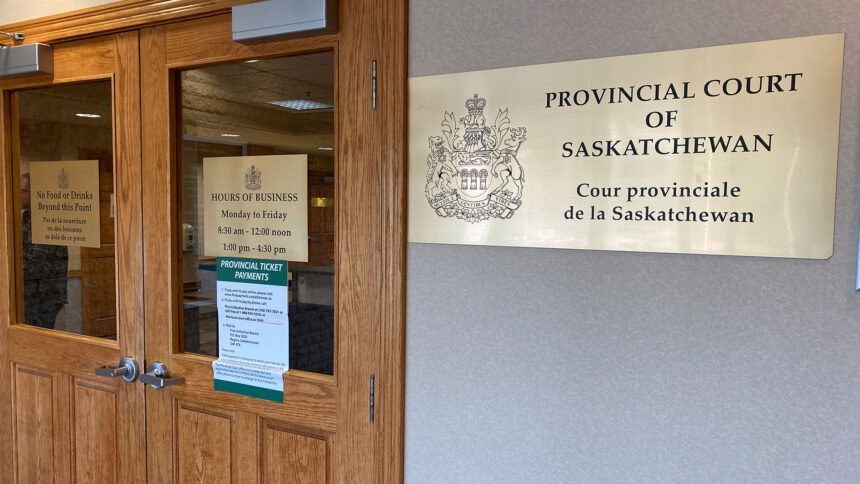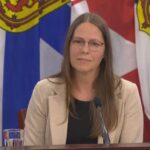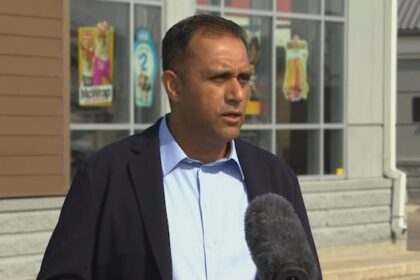A Saulteaux woman waiting to hear if her 1994 murder conviction in Saskatchewan was a miscarriage of justice is now fighting an alleged bail violation in that province. Odelia Quewezance and her sister Nerissa Quewezance of Keeseekoose First Nation were released on bail in March 2023 to await a federal Department of Justice review of their wrongful conviction application in the 1993 stabbing death of Joseph Dolff. Another person confessed to killing Dolff but the sisters were sentenced to life in prison for second-degree murder. They served 24 years in prison and six years on parole until Innocence Canada and Legal Aid Saskatchewan filed a miscarriage of justice application on their behalf in November 2022. Because such applications can take years the sisters were freed conditions to avoid further time in custody over the objection of the Crown Prosecution Service (CPS) of Saskatchewan. Now, Odelia’s lawyers are representing her at a trial in Yorkton, 188 kilometres northeast of Regina, after she pleaded not guilty to being about five minutes late for her 11 p.m. curfew on April 3, 2024. Read More: There may have been a miscarriage of justice in case of Quewezance sisters, says justice minister A regional Crown attorney, Andrew Wyatt, said she could pay a $100 fine in lieu of a plea but she refused. Instead her lawyer, James Lockyer with Innocence Canada in Toronto, suggested Odelia, 52, shouldn’t have been charged with failing to comply at all. Lockyer accused Saskatchewan RCMP and prosecutors of “systemic racism” and adding to the over-representation of Indigenous peoples in the province’s criminal justice system. He argued Bill 75, the bail-reform legislation introduced by former Liberal Justice Minister Jody Wilson-Raybould in 2018, was designed for a case such as this as a way to reduce the “extraordinarily high number” of Indigenous Peoples behind bars in Canada. Lockyer said the bill provided tools such as Sec. 523.1 of the Criminal Code to give police discretion when it came to charging an Indigenous person with a bail violation and avoid adding to the over-representation of Indigenous Peoples in the criminal justice system. “Section 523.1 is an effort to try and reduce the criminality that gets attached to Indigenous Peoples in our system,” Lockyer told provincial court Judge Derek Maher. “… The Crown Prosecution Service (in Saskatchewan) has decided to ignore 523.1.” Odelia Quewezance speaks to reporters outside Court of King’s Bench in Yorkton, Sask., on Nov. 24, 2022. Photo: APTN file But Crown attorney Noah Manikowski rejected the claim, noting Sec. 523.1 was an option for police officers and Crown attorneys. He accused Lockyer of making “sweeping generalizations” when it came to the CPS, which Manikowski said neither has a policy for nor tracks the usage of Sec. 523.1. “There are other tools available to prosecutors (when it comes to dealing with bail offences),” Manikowski, of the Constitutional Law Branch, added. “This (defence) challenge is trying to make new law.” Lockyer and Deanna Harris, director of Legal Aid in Yorkton, filed an abuse of process application against the CPS for not using Sec. 523.1, which they allege violates Odelia’s charter rights. The mother of three was in the courtroom for the day’s hearing wearing a traditional First Nations ribbon skirt. She is noticeably thinner due to the stress of waiting for a decision in her wrongful conviction application, she told APTN News. Read More: Saskatchewan judge releases Saulteaux sisters on bail while minister reviews murder case A federal government spokesperson said in an email to APTN that the sisters’ application is “under active review by the Department of Justice Canada’s Criminal Conviction Review Group” but couldn’t provide further details such as when a decision would be made. Lockyer said the over-representation of Indigenous Peoples in the criminal justice system was due to the inter-generational effects of colonization and residential schools. He said census data showed the number of incarcerated Indigenous Peoples was highest in the Prairie provinces of Manitoba and Saskatchewan. Saskatchewan, in particular, has a staggering 72 per cent of people with Indigenous ancestry in its prisons, he said. Odelia was the exact type of vulnerable, female and Indigenous candidate Parliament had in mind when it approved Sec. 523.1, Lockyer added. He described it as a “meaningful remedy” in addressing systemic discrimination within the criminal justice system. And, said the judge had the power to show through his decision that it should have been applied in this case. Sisters’ records Meanwhile, Yorkton Crown attorney Andrew Wyatt defended charging Odelia with breaching bail, noting the sisters’ records spoke for themselves. “They have a history of failing to abide by release provisions (while on parole),” he told the court. The hearing is scheduled to resume Thursday. Continue Reading
Odelia Quewezance challenging alleged bail violation in Saskatchewan

Leave a Comment










